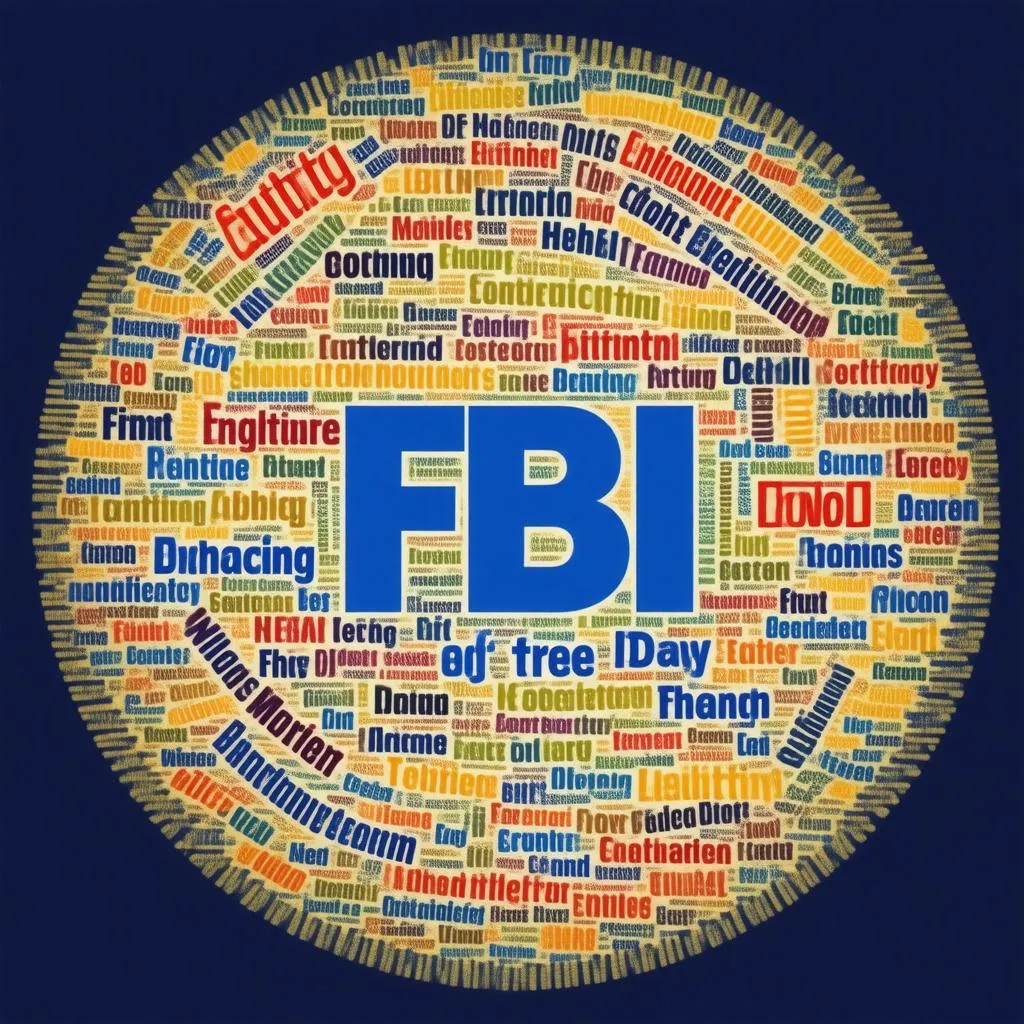While the FBI has not officially launched a “Wordle of the Day” program, this article explores a hypothetical initiative that merges the FBI’s public engagement goals with the educational mechanics of Wordle, the viral word puzzle game. Below, we analyze how such a program could function, its potential benefits, and challenges, drawing parallels to existing Wordle-inspired projects and FBI-related public communications.

Introduction to the Hypothetical “FBI Wordle of the Day”
Imagine a daily puzzle where players decode a five-letter word related to cybersecurity, law enforcement terminology, or civic literacy. Inspired by the original Wordle—a game developed by Josh Wardle and later acquired by The New York Times—this fictional “FBI Wordle” could aim to educate the public about cybersecurity best practices, FBI operations, and vocabulary tied to national security.
Such a program might align with the FBI’s efforts to improve public awareness, similar to their recent advisories on encrypted messaging apps. By gamifying education, the FBI could engage broader audiences while subtly promoting digital literacy.
How It Could Work
Word Selection and Rules
- Thematic Words: Words might include terms like “phish,” “encrypt,” “fraud,” or “alert,” reflecting FBI priorities like cybercrime prevention.
- Feedback Mechanics: Borrowing from Wordle’s color-coded system, players would receive hints about letter placement (green = correct spot, yellow = correct letter, gray = incorrect).
- Daily Limits: Like traditional Wordle, the puzzle would reset every 24 hours, encouraging daily participation.
Educational Value
A program like this could offer:
- Vocabulary Expansion: Introducing terms like “ransomware” or “firewall” in a low-stakes, interactive format.
- Critical Thinking: Players analyze letter patterns and eliminate possibilities, honing problem-solving skills.
- Cybersecurity Awareness: Each solved word could link to an FBI resource (e.g., tips to avoid phishing scams).
Teachers have already used Wordle to teach phonics and logic, suggesting similar applications for law enforcement terminology.
Public Engagement Potential
While participation metrics are speculative, Wordle’s existing popularity—with millions of daily players—shows the viability of word games as engagement tools. An FBI-branded version might:
- Foster Trust: Transparent communication through games could humanize the agency.
- Encourage Community: Social media sharing of results (e.g., “FBI Wordle 3/6”) might spark discussions about cybersecurity.
Comparison to Other Word Games
| Feature | FBI Wordle | Traditional Wordle | Nerdle (Math Puzzle) |
|---|---|---|---|
| Theme | Cybersecurity/FBI | General vocabulary | Math equations |
| Educational Focus | Digital literacy | Vocabulary/spelling | Arithmetic |
| Feedback | Color-coded hints | Color-coded hints | Numeric hints |
Like Dordle (two simultaneous Wordles) or Queerdle (LGBTQ+ themes), an FBI version could carve a niche by specializing in security terminology[4].
Security and Privacy Considerations
While gamification poses minimal risk, any FBI-affiliated digital tool would face scrutiny:
- Data Collection: Hypothetical concerns might include tracking user IP addresses or solving patterns. The FBI has historically emphasized encrypted communication to protect data.
- Misinformation Risks: Ensuring puzzle answers are factually accurate (e.g., defining “encryption” correctly) would be critical.
Future Developments
If launched, the program could expand by:
- Adding Multiplayer Modes: A “Squadle” format where teams solve puzzles collaboratively.
- Incorporating Real Cases: Using anonymized case keywords (e.g., “Breach”) to educate players.
- Multilingual Support: Offering puzzles in Spanish or other languages to reach diverse audiences.
FAQ Section
Q: Is the FBI Wordle of the Day a real program?
A: No. This article explores a fictional concept inspired by Wordle’s success and the FBI’s public outreach efforts.
Q: How could the FBI ensure user privacy in such a game?
A: By avoiding data collection beyond basic analytics and promoting end-to-end encryption for any user accounts.
Q: What educational benefits would distinguish it from regular Wordle?
A: Focused terminology related to cybersecurity and law enforcement could enhance public awareness of digital safety.
Q: Are there similar games today?
A: Yes! Games like Primel (math), Queerdle (LGBTQ+ themes), and Worldle (geography) show how Wordle’s format adapts to niche topics.
Conclusion
Though purely speculative, an “FBI Wordle of the Day” illustrates how government agencies might leverage gaming to educate and engage. By combining Wordle’s addictive mechanics with mission-driven content, such initiatives could turn casual players into informed citizens—one five-letter word at a time.